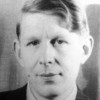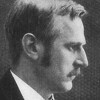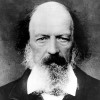Quotations about:
grief
Note not all quotations have been tagged, so Search may find additional quotes on this topic.
In short, we can judge by nothing but Appearances, and they are very apt to deceive us. Some put on a gay chearful Outside, and appear to the World perfectly at Ease, tho’ even then, some inward Sting, some secret Pain imbitters all their Joys, and makes the Balance even: Others appear continually dejected and full of Sorrow; but even Grief itself is sometimes pleasant, and Tears are not always without their Sweetness: Besides, Some take a Satisfaction in being thought unhappy, (as others take a Pride in being thought humble,) these will paint their Misfortunes to others in the strongest Colours, and leave no Means unus’d to make you think them thoroughly miserable; so great a Pleasure it is to them to be pitied; Others retain the Form and outside Shew of Sorrow, long after the Thing itself, with its Cause, is remov’d from the Mind; it is a Habit they have acquir’d and cannot leave.
Benjamin Franklin (1706-1790) American statesman, scientist, philosopher, aphorist
“A Dissertation on Liberty and Necessity” (1725)
(Source)
Talk to me about the truth of religion and I’ll listen gladly. Talk to me about the duty of religion and I’ll listen submissively. But don’t come talking to me about the consolations of religion or I shall suspect that you don’t understand.
Unless, of course, you can literally believe all that stuff about family reunions “on the further shore,” pictured in entirely earthly terms. But that is all unscriptural, all out of bad hymns and lithographs. There’s not a word of it in the Bible. And it rings false. We know it couldn’t be like that. Reality never repeats. The exact same thing is never taken away and given back. How well the Spiritualists bait their hook! “Things on this side are not so different after all.” There are cigars in Heaven. For that is what we should all like. The happy past restored.
And that, just that, is what I cry out for, with mad, midnight endearments and entreaties spoken into the empty air.
Excess of grief for the deceased is madness; for it is an injury to the living, and the dead know it not.
Xenophon (c. 431-355 BC) Greek historian and essayist
(Attributed)
(Source)
In Anon. Mental Recreation Or, Select Maxims, Sayings And Observations Of Philosophers (1831).
I can’t think of a more wonderful thanksgiving for the life I have had than that everyone should be jolly at my funeral.
Lord Mountbatten (1900-1979) British statesman and naval officer (Louis Francis Albert Victor Nicholas Mountbatten, 1st Earl Mountbatten of Burma, b. Prince Louis of Battenberg)
(Attributed)
(Source)
Quoted in Richard Hough, Mountbatten (1980).
Time does not bring relief; you all have lied
Who told me time would ease me of my pain!
I miss him in the weeping of the rain;
I want him at the shrinking of the tide;
The old snows melt from every mountain-side,
And last year’s leaves are smoke in every lane;
But last year’s bitter loving must remain
Heaped on my heart, and my old thoughts abide!
There are a hundred places where I fear
To go, — so with his memory they brim!
And entering with relief some quiet place
Where never fell his foot or shone his face
I say, “There is no memory of him here!”
And so stand stricken, so remembering him!
Never does one feel oneself so utterly helpless as in trying to speak comfort for great bereavement. I will not try it. Time is the only comforter for the loss of a mother.
There is such a thing as internal collapse. Despairing certitude does not infiltrate a human being without displacing and disrupting certain profound elements that sometimes constitute the man himself. Grief, when it reaches this pitch, routs all strength of conscience. These are deadly crises. Few of us emerge from them true to ourselves and steadfast in our duty. When the limit of endurance is exceeded, the most unshakeable virtue is undermined.
[Il y a des effondrements intérieurs. La pénétration d’une certitude désespérante dans l’homme ne se fait point sans écarter et rompre de certains éléments profonds qui sont quelquefois l’homme lui-même. La douleur, quand elle arrive à ce degré, est un sauve-qui-peut de toutes les forces de la conscience. Ce sont là des crises fatales. Peu d’entre nous en sortent semblables à eux-mêmes et fermes dans le devoir. Quand la limite de la souffrance est débordée, la vertu la plus imperturbable se déconcerte.]
Victor Hugo (1802-1885) French writer
Les Misérables, Part 4 “Saint Denis,” Book 15 “The Rue de L’Homme Armé,” ch. 1 (4.15.1) (1862) [tr. Donougher (2013)]
(Source)
Valjean "internally collapsing" at the realization that Cosette plans to leave him for Marius, and deciding to track Marius down to confront or even kill him.
(Source (French)). Alternate translations:
There are interior subsoilings. The penetration of a torturing certainty into man does not occur without breaking up and pulverising certain deep elements which are sometimes the man himself. Grief, when it reaches this stage, is a panic of all the forces of the soul. These are fatal crises. Few among us come through them without change, and firm in duty. When the limit of suffering is overpassed, the most imperturbable virtue is disconcerted.
[tr. Wilbour (1862)]
There are such things as internal landslides; the penetration of a desperate certainty into a man is not effected without removing and breaking certain profound elements which are at times the man himself. Grief, when it attains that pitch, is a frantic flight of all the forces of the conscience, and such crises are fatal Few among us emerge from them equal to ourselves and firm in our duty, for when the limit of suffering is exceeded the most imperturbable virtue is disconcerted.
[tr. Wraxall (1862)]
There is such a thing as the sudden giving way of the inward subsoil. A despairing certainty does not make its way into a man without thrusting aside and breaking certain profound elements which, in some cases, are the very man himself. Grief, when it attains this shape, is a headlong flight of all the forces of the conscience. These are fatal crises. Few among us emerge from them still like ourselves and firm in duty. When the limit of endurance is overstepped, the most imperturbable virtue is disconcerted.
[tr. Hapgood (1887)]
There is such a thing as spiritual collapse. The thrust of a desperate certainty into a man cannot occur without the disruption of certain profound elements which are sometimes the man himself. Anguish, when it has reached this stage, becomes a panic-flight of all the powers of conscience. There are mortal crises from which few of us emerge in our right mind, with our sense of duty still intact. When the limit of suffering is overpassed the most impregnable virtue is plunged in disarray.
[tr. Denny (1976)]
There are interior collapses. The penetration of a torturing certainty within man does not occur without breaking up and pulverizing certain deep elements that are sometimes the man himself. Grief, when it reaches this level, is a panic of all the forces of consciousness. These are fatal crises. Few among us come through them unchanged and firm in duty. When the limit of suffering is topped, the most imperturbable virtue is disconcerted.
[tr. Wilbour/Fahnestock/MacAfee (1987)]
Sorrow is a kind of rust of the soul, which every new idea contributes in its passage to scour away. It is the putrefaction of stagnant life, and is remedied by exercise and motion.
Samuel Johnson (1709-1784) English writer, lexicographer, critic
The Rambler, #47 (28 Aug 1750)
(Source)
CLAUDIUS: When sorrows come, they come not single spies,
But in battalions.William Shakespeare (1564-1616) English dramatist and poet
Hamlet, Act 4, sc. 5, l. 84ff (4.5.84-85) (c. 1600)
(Source)
Who never ate his bread in sorrow,
Who never spent the darksome hours
Weeping and watching for the morrow,
He knows ye not, ye gloomy Powers.To earth, this weary earth, ye bring us,
To guilt ye let us heedless go,
Then leave repentance fierce to wring us:
A moment’s guilt, an age of woe!Johann Wolfgang von Goethe (1749-1832) German poet, statesman, scientist
Wilhelm Meister’s Apprenticeship, 2.13 (1796) [tr. Carlyle (1824)]
(Source)
I shall change their mourning into gladness, comfort them, give them joy after their troubles.
The Bible (The Old Testament) (14th - 2nd C BC) Judeo-Christian sacred scripture [Tanakh, Hebrew Bible], incl. the Apocrypha (Deuterocanonicals)
Jeremiah 31:13 [NJB (1985)]
(Source)
Alternate translations:
For I will turn their mourning into joy, and will comfort them, and make them rejoice from their sorrow.
[KJV (1611)]
I will comfort them and turn their mourning into joy,
their sorrow into gladness.
[GNT (1976)]
I will turn their mourning into joy;
I will comfort them and give them gladness for sorrow.
[NRSV (1989 ed.)]
I will turn their mourning to joy,
I will comfort them and cheer them in their grief.
[RJPS (2023 ed.)]
Croesus said to Cambyses: That peace was better than war; because in peace the sons did bury their fathers, but in wars the fathers did bury their sons.
Francis Bacon (1561-1626) English philosopher, scientist, author, statesman
Apophthegms, #149 (1625)
See Herodotus.
I cannot forgive my friends for dying; I do not find these vanishing acts of theirs at all amusing.
Logan Pearsall Smith (1865-1946) American-English essayist, editor, anthologist
Afterthoughts, ch. 2 “Age and Death” (1931)
(Source)
All changes, even the most longed for, have their melancholy; for what we leave behind us is a part of ourselves; we must die to one life before we can enter into another!
Anatole France (1844-1924) French poet, journalist, novelist, Nobel Laureate [pseud. of Jaques-Anatole-François Thibault]
The Crime of Sylvestre Bonnard, Part 2, ch. 4 (1881) [tr. L. Hearn (1890)]
(Source)
I hold it true, whate’er befall;
I feel it, when I sorrow most;
‘Tis better to have loved and lost
Than never to have loved at all.
Waste not fresh tears over old griefs.
Euripides (485?-406? BC) Greek tragic dramatist
Alexander [Ἀλέξανδρος], Frag. 44 (TGF) [Chorus?] (415 BC) [tr. Morgan]
(Source)
MALCOLM: Give sorrow words; the grief that does not speak
Whispers the o’er-fraught heart and bids it break.William Shakespeare (1564-1616) English dramatist and poet
Macbeth, Act 4, sc. 3, l. 246ff (4.3.246-247) (1606)
(Source)
Speaking of Yen Hui, the Master said: “How sad — to watch him forge ahead so resolutely, and never see how far he could go.”
[子謂顏淵曰、惜乎、吾見其進也、未見其止也。]
Confucius (c. 551- c. 479 BC) Chinese philosopher, sage, politician [孔夫子 (Kǒng Fūzǐ, K'ung Fu-tzu, K'ung Fu Tse), 孔子 (Kǒngzǐ, Chungni), 孔丘 (Kǒng Qiū, K'ung Ch'iu)]
The Analects [論語, 论语, Lúnyǔ], Book 9, verse 21 (9.21) (6th C. BC – AD 3rd C.) [tr. Hinton (1998)]
(Source)
Regarding his finest student, who died young. Probable origin of a phrase frequently attributed to Confucius: "It does not matter how slowly you go so long as you do not stop."
Earlier sources use Legge's numbering of 9.20, as noted. (Source (Chinese)). Alternate translations:
The Master said of Yen Yuan, "Alas! I saw his constant advance. I never saw him stop in his progress."
[tr. Legge (1861), 9.20]
"Alas for Hwúi! I saw him (ever) making progress. I never saw him stopping short."
[tr. Jennings (1895), 9.20]
Confucius remarked of the same disciple [Yen Hui]: "Alas! he is dead. I have observed his constant advance; I never saw him stop in his progress."
[tr. Ku Hung-Ming (1898), 9.20]
The Master, referring to Yen Yüan, said: "Alas! I ever saw him make progress, and never saw him stand still."
[tr. Soothill (1910), 9.20]
He described Yen Yuan: Alas, I see him advance, I never see him stop (take a position).
[tr. Pound (1933), 9.20]
The Master said of Yen Hui, Alas, I saw him go forward, but had no chance to see whither this progress would have led him in the end.
[tr. Waley (1938), 9.20]
What a pity that Yen Hui is gone! I saw him make progress, but I never found out what his limit was.
[tr. Ware (1950)]
Alas! I only saw him advance and never saw him stop.
[tr. Huang (1997)]
The Master said of Yen Yūan, "I watched him making progress, but I did not see him realize his capacity to the full. What a pity!"
[tr. Lau (1979)]
The master said of Yan Hui: "Alas! I saw that he was making progress, but I never saw that he was stopping."
[tr. Dawson (1993)]
The Master said of Yan Hui: "Alas, I watched his progress, but did not see him reach the goal."
[tr. Leys (1997)]
The master, speaking of Yan Yuan, said: "Alas! I only saw him advance and never saw him stop."
[tr. Huang (1997)]
Confucius talked about Yuan Yan, said: "What regrettable it is! I just saw that he kept going ahead, and never saw that he got any stopping."
[tr. Cai/Yu (1998), #230]
The Master said about Yan Hui, "Such a pity! I only saw his progress; I never saw where he got to."
[tr. Ames/Rosemont (1998)]
The Master said of Yén Hwéi, Alas! I saw him start, but I did not see him finish.
[tr. Brooks/Brooks (1998)]
The Master said of Yan Hui, “Alas! I watched his advance, and never once saw him stop.”
[tr. Slingerland (2003)]
Speaking of Yan Yuan, the Master said, What a pity! I saw him move forward. I never saw him come to a stop.
[tr. Watson (2007)]
The Master, referring to Yan Hui, said, "It is a pity! I saw him moving forward but did not see him complete his journey."
[tr. Chin (2014)]
Confucius said of Yan Yuan, "Impressive indeed! I always see his progress and have never noticed his pause."
[tr. Li (2020)]
When the Egyptians were drowning in the Red Sea, the angels in heaven began to break forth in songs of jubilation, but the Holy One, blessed be He, silenced them: “My creatures are perishing — and ye are ready to sing!”
BOLINGBROKE: Grief makes one hour ten.
William Shakespeare (1564-1616) English dramatist and poet
Richard II, Act 1, sc. 2, l. 267 (1.2.267) (1595)
(Source)
PAULINA: What’s gone and what’s past help
Should be past grief.William Shakespeare (1564-1616) English dramatist and poet
Winter’s Tale, Act 3, sc. 2, l. 246ff (3.2.246-247) (1611)
(Source)




























